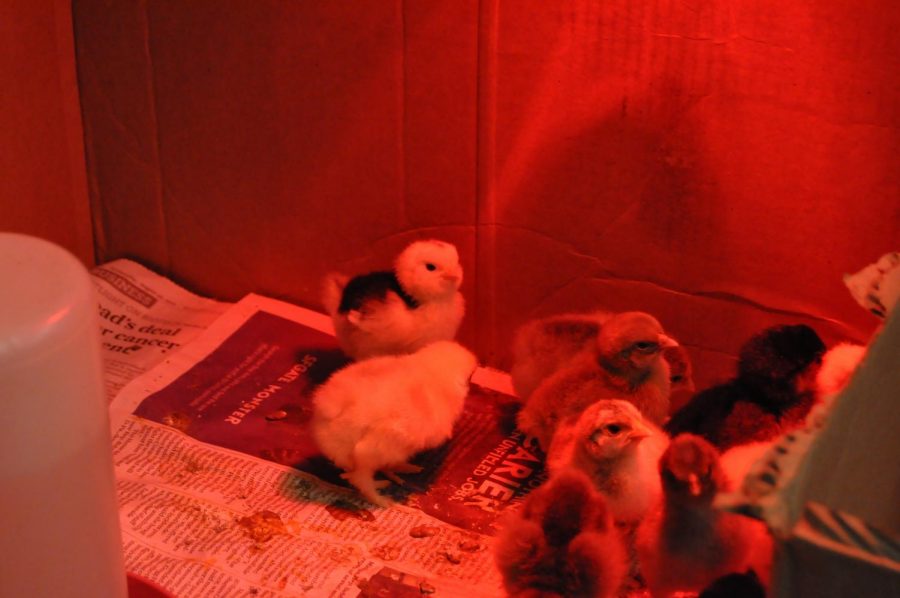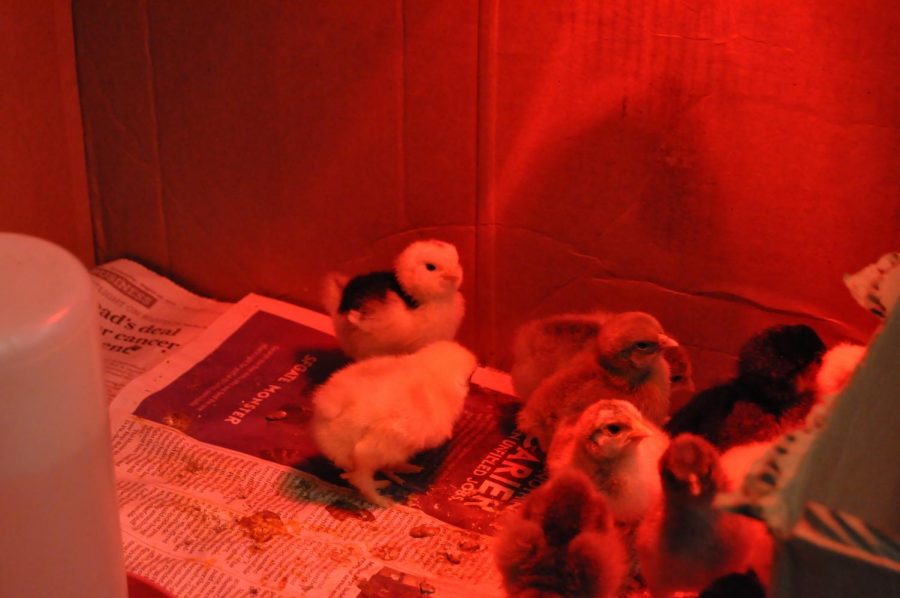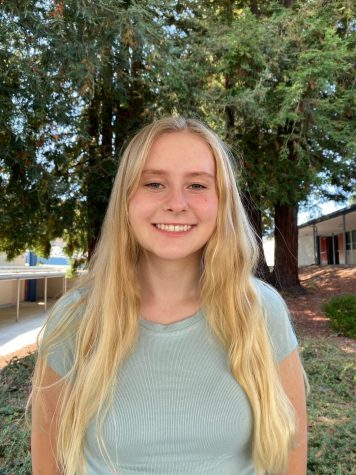Turkey Emerges from Abandoned Egg
May 21, 2018
For the first time, Cheryl Rego and Roxanna Jackman’s Living Earth courses have included a turkey hatchling among the new crop of spring chickens being raised by students. The turkey chick emerged out of its shell along with 45 baby chickens on April 30.
The inclusion of the turkey is the result of an improbable discovery, and an even more improbable survival. “The turkey is really pretty amazing because a student just found a turkey egg at a ranch on the ground. It was hard to see what the animal was because the shell was too thick so I didn’t even know if it is fertilized. The odds of it being fertilized recently and not just being an egg laying there for 2 months is very low, it’s pretty amazing” said Rego.
Rego said she was grateful for the discovery and the opportunity to raise a turkey for the first time.
While not all of the hatchlings have acquired names yet, Rego named the turkey “Thelma.” A few of the chicks are named Mocha, Panther, and Rosie (after the famous scientist Rosalind Franklin).
The annual science project allows students to work on practical application of concepts learned from their text book. Freshman Danielle Whisnant said, “I thought it was a cool project because we were going to get to experience raising the chicks and what the signs were that they were alive, dead, or unfertilized. I thought that was really interesting.”
The eggs had been incubating since April 9. “Students handled the eggs very little while they were incubating. While the eggs were incubating, we were studying how cells divide, and how sexually reproducing organisms gain variation, which is good for avoiding extinction. It’s pretty amazing how one fertilized egg can become one bouncing, fluffy chick in just 21 days,” said Jackman.
Students learned how to “candle” an egg, a maneuver in which light is shone into an egg to identify signs of life, identify the signs of early death or in-fertilization, and tend to the newly hatched chicks.
However, despite the teachers’ efforts to offer a more “hands-on” approach to students, according to Rego, the students “haven’t done much with [the chicks].”
Jake Todd said, “We don’t learn as much from the chicks project and it more hands-off.”
Raising chickens preceded a unit about fruit flies, where students collected virgin flies and mated them in hopes of detecting mutations. Whisnant said, “You actually learned more from [fruit flies] versus the chicks.”
Rego plans to keep the turkey on campus so that her students can monitor its growth. As for the rest of the chicks, a few will be selected to live in the chicken coop on campus and the rest will be adopted by students.


